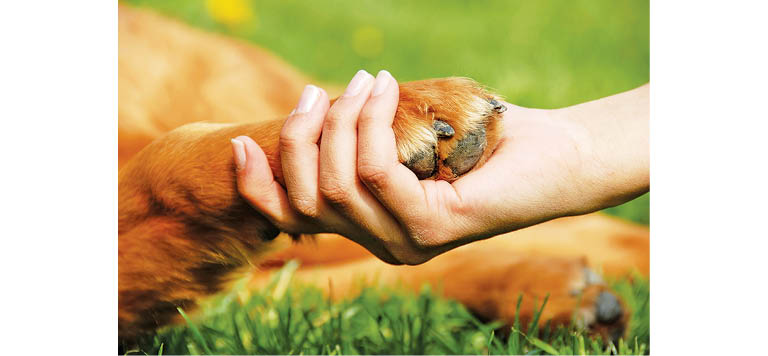- A good/successful trainer has oodles of patience.

- Rewarding good behaviour is crucial for successful dog training. Focus on initiating and rewarding good behaviour rather than waiting for the dog to misbehave and then punishing it.
- Always praise your dog for behaving well at least twice as much as you correct the dog for misbehaving. It’s more effective.
- Never punish your pet for coming to you or by calling it. Since dogs associate the last action with the reward or punishment, the dog will think it is being punished for coming to you. In time, it will stop coming when called. If you have to scold your dog, only do so when you can catch it in the act, not otherwise.
- If you only pay attention to your dog when he misbehaves, you might be rewarding bad behaviour unintentionally.
- Make sure you reward your dog for good behaviour; otherwise your dog might seek your reprimands as attention. Since this could be the only attention it gets, he won’t mind even if it is negative.
- A sense of humour is necessary when training a dog. It makes the training session more fun, and the dog is more like to obey you when you’re cheerful and upbeat.
- Dogs are not deaf – avoid shouting a command to a dog. A command that is spoken clearly with the correct tone inflection will have the required result.
- If you become angry or frustrated whilst training, stop the training immediately. Resume only after you have calmed down.
- Do not punish a dog just because you are mad at it or to get even with it. Earning your dog’s respect is never accomplished by yelling, hitting or handling your dog in a harsh manner.
- Dogs communicate with other canines through vocalisation, body language and touch. Incorporate these elements into your training session.
- It is easier to prevent undesirable behaviours than to put them right.
- A dog that obeys out of fear and submission is not a happy, well-trained dog. The truly obedient dog is one who obeys because he wants to.
- A reward or punisher must be given immediately/within two seconds of the act for the dog to associate it with the action. A good trainer is one with an excellent sense of timing.
- Never ever hit a dog – especially when training it. Not only does it hurt, but the pain also causes the dog to fear you and can put the dog off training. Over a period of time the dog will lose trust in the owner.
- Avoid playing games with your dog that will encourage rowdy or aggressive behaviour. Games that teach a dog to bite at clothing, nip at the arms and legs, and wrestle with people should be discouraged. Any game that elicits a growl from the dog must immediately be stopped. Games such as hide and seek, fetch, and scenting games will channel a dog’s energies in a creative way.
- The tone of your voice and your facial expression are important when communicating with your pet. A dog will pick up on your tone of voice long before he learns a word. When praising your dog make sure to keep your tone pleasant and your face smiling. When scolding, a low gruff tone and a frowning face will ensure your dog knows you’re upset. Many owners confuse their pet by praising and scolding in the same tone of voice.
- Your dog is a canine. Your dog’s behaviour is perfectly normal for your dog. Respect that and treat him like one.
- When you start training your dog, make it easy on him and you by teaching in a quiet, non-distracting place. Once he has mastered the commands you should practise in different places like your compound or a local park to get him used to working with distractions around.
- Always praise your dog for behaving well.
- You don’t need to dominate a dog to train it. It is easier and much more fun to train him if he thinks of you as a best friend he can trust.
- Your dog should have total trust in you. Your dog should believe if it does what you ask, no harm will come to it. Thus, even if the dog is unsure it will respond and trust your judgement. Trust is also important for a reliable recall.
- Your dog is a living, breathing, thinking creature, not a robot. Enjoy his uniqueness, accept his quirks and work with, not against, his personality.
- It is unfair to train a dog that is sick or under medication. Not only will the animal not respond to the training, but it can also cause him to associate it with something unpleasant.
- Building a relationship with your dog takes effort, just like any other relationship. Try to include your dog into your lifestyle. It’s working together that makes you a team.
Latest posts by Shirin Dhabhar (see all)
- Cracking The Canine Contentment Code: What Makes Dogs Happy - 10 August2024
- The Dark Side Of Pampered Pets: Is Your Kindness Harming Your Dog? - 16 March2024
- Kids And Preventing Dog Bites - 18 March2023
